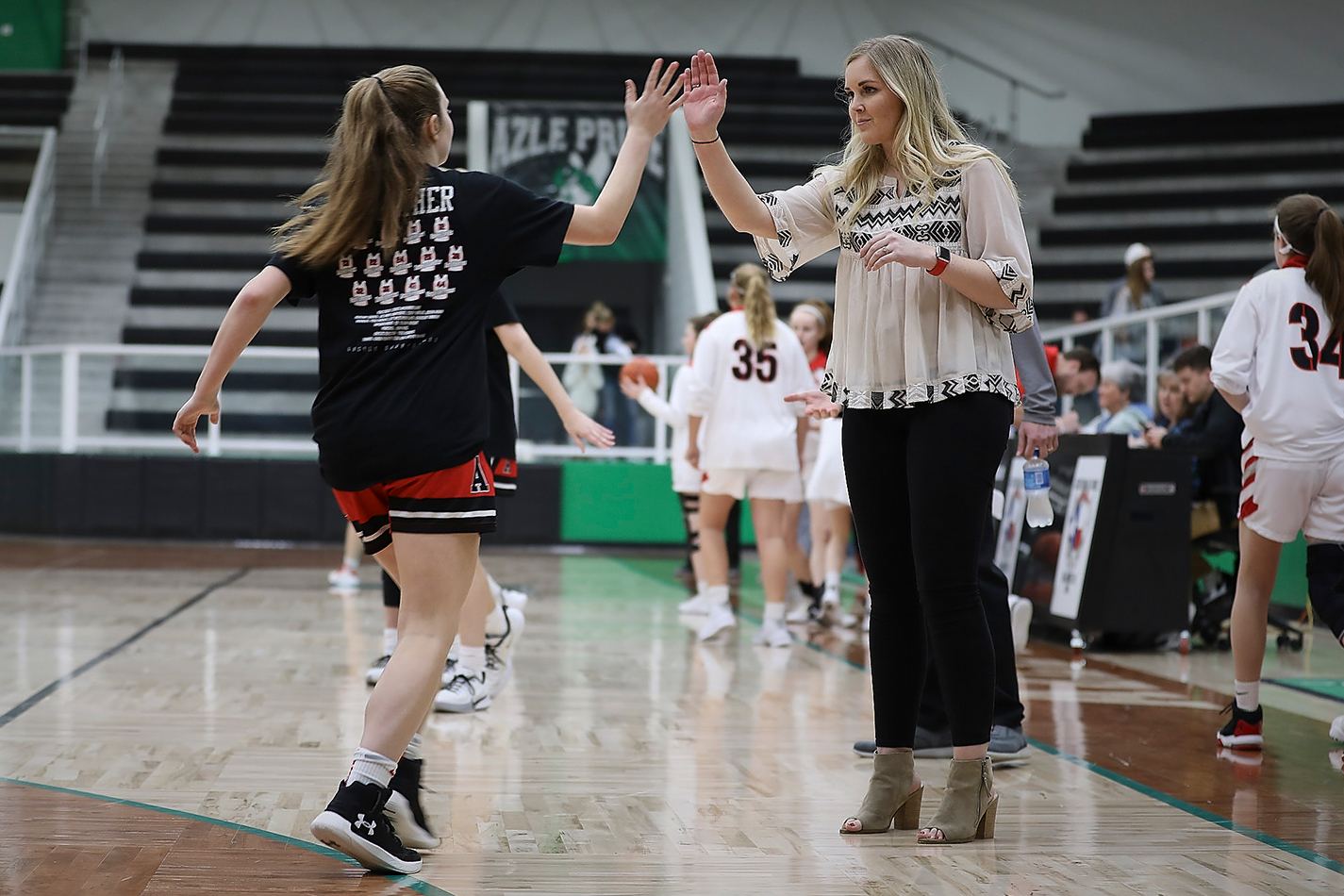Mission:
Kobe Bryant always said he wanted to give back to his community. He once surprised students at Oxford Prep Academy, a tuition-free charter school in Mission Viejo, California, after learning their teacher had incorporated Kobe’s podcast for kids into his lesson plans.
“They have a really, really great teacher, who is completely committed to and passionate about teaching young kids,” Kobe said. “He actually built the curriculum around one of the shows Kobe created, and he caught wind of it and decided to pop in for a surprise visit.” Who is this second quote from?
“At the end of the day, the most important people that I’ve found in my life were family […] teachers and coaches,” he continued. “I think our responsibility [as teachers and role models] is to always inspire—to try to take some of the life lessons that we’ve learned and share those with the next generation, so that they can start their journey with a leg up, right? … It’s extremely important to teach life lessons to these young kids at an early age, but to do it in an entertaining way.”
Nutrition: Strategies to Help Young Athletes Eat Better
Over the years, I’ve found that poor nutrition habits, often characterized by a failure to eat regularly, are one of the biggest barriers kids face in achieving their athletic potential. When these young athletes do eat, they don’t usually eat enough or consume enough healthy food to support proper recovery and maximize growth.
As coaches, it’s imperative we help our athletes realize that the work they do on the court, the field or in the weight room must be supported by what they consume outside of it. Athletes must then turn that knowledge into consistent action and execution. What they put in their bodies fuels them; it’s a crucial component of every athlete’s performance.
Nutrition Tips for Coaches: How to Help Athletes Understand The Importance of Eating Healthy
The value of knowing what to do must also be underscored by an understanding of why it’s being done. If an athlete understands that their workout progress or game day performance is tied to their diet, they’ll be much more likely to pay attention to the quality and quantity of the food consumed. Sharing this with your athletes can be as simple as having a friendly conversation.
As a mom and coach, when I see a player’s performance slipping, my first question is almost always, “What did you eat?” Often, their answer is, “I was in a hurry and didn’t have time.”
Reinforce Why Athletes Need to Eat Properly
While many coaches may not have a big budget, try to offer a nutritious option for your athletes’ post-workout or game. Things like water and fruit consumed immediately post-workout will provide those much-needed calories.
Remember to Follow-Up
Take a few minutes to check-in with your athletes, especially those you believe might be neglecting their meals. With the scenario mentioned above, it was pretty easy to tell something was off, both physically and cognitively. I followed up with them every morning to ask if they had eaten dinner or breakfast.
I’ve also asked my players to complete a 3-day food log. Not only did it help strengthen my relationship with them, but it also helped hold them accountable.
Social media, which often features photoshopped selfies, can cause body image issues in both male and female athletes. The images and posts featured on these platforms are often gas on an already out-of-control fire. Know your players and be sensitive when addressing these types of issues with them.
Tips for Student-Athletes
When it comes to proper eating habits, you also share some of the responsibility. After all, it’s your body and your athletic career. With 168 hours in a week, you’ll likely spend 10–12 hours max. with your coach. With so much time on your own, it’s up to you to look out for yourself and eat in a way that supports your goals.
Plan to Have Good Food Around
This is a commitment to your discipline. Try not to make it harder on yourself. In my mind, proximity to food has always been a good barometer for gauging an athlete’s commitment to their goals. My players love things like PB&J sandwiches, fruit, jerky and water. When you leave home for the day, make sure you’ve packed yourself an extra sandwich and some healthy snacks. A small amount of prep will yield great results for you down the line.
Make Choices That Support Your Goals
You have heard the saying, “your body is your temple.” Treat it that way! As hunger increases, the quality of the calories you consume usually decreases. I’ve seen this play out countless times, as starving athletes race to the nearest fast-food restaurant to scarf down thousands of low-quality calories. I’m not saying the occasional cheeseburger or pizza is off the menu, but they shouldn’t comprise the bulk of your diet, either. We want quality and quantity!
Strength and Conditioning
Strength and Conditioning Coaches face challenges at every level. While many of these are similar across the board, from the professional ranks all the way down to high school and middle school, there are also challenges many of us don’t share. Collective bargaining agreements in pro sports and strict “hours” rules in the NCAA can limit a strength coach’s contact time with athletes, while a high school strength coach may have 30–40 beginner-level athletes training at one time, year ‘round.
Every Strength and Conditioning Coach has a different reality that shapes their views on training and organization. I believe small group training and working one-on-one with athletes is a different animal than working with 30+ athletes in a strictly limited amount of time and space. The latter requires a strict adherence to basic training exercises and progressions. The basics can be boring with repeated low-level progressions. But, I ask, what is the goal?
I am a fan of Prehab, not Rehab. Prehab gets you strong and ready for the work in front of you, and rehab is after the fact when you get injured. Do your work early and often.
In many sports where weight training has not been traditionally accepted, you run into kids who are only in the weight room because a coach told them to be there. There is no intent on their part to physically improve. The sports where this is prevalent are the same sports where the head coach needs to talk to the Training Staff along with Strength and Conditioning Coaches. You are a TEAM!
Strength training should never be about entertainment. Time is limited, and high school athletes don’t train six days per week. If coaches run out of things to do, then it’s necessary for them to re-examine their training process. Athletes need to sprint, jump, throw, push, pull, squat, stretch and hinge. Basic training options are endless if you focus on those areas.
Reflection
Move from FEAR to DARE
“First say to yourself what you would be, and then do what you have to do.” — Epictetus
Training your mind requires moving from avoidance to acceptance. To overcome your fears and be courageous to live the life you want.
Realistic goals: Do you have the skills needed to achieve your goals? Can you reach them or should you adjust your goals to your current abilities? Sometimes setting micro-goals is smarter. The more you achieve, the more you can achieve.
Embracing Values: Are your actions aligned with your values? This is one of the most common reasons why people get stuck. Lack of motivation is typically correlated to lack of clarity or doing things that don’t matter to oneself.
Your mind is your most valuable asset, training it not only takes a lifetime — it’s the most critical priority in your life.

